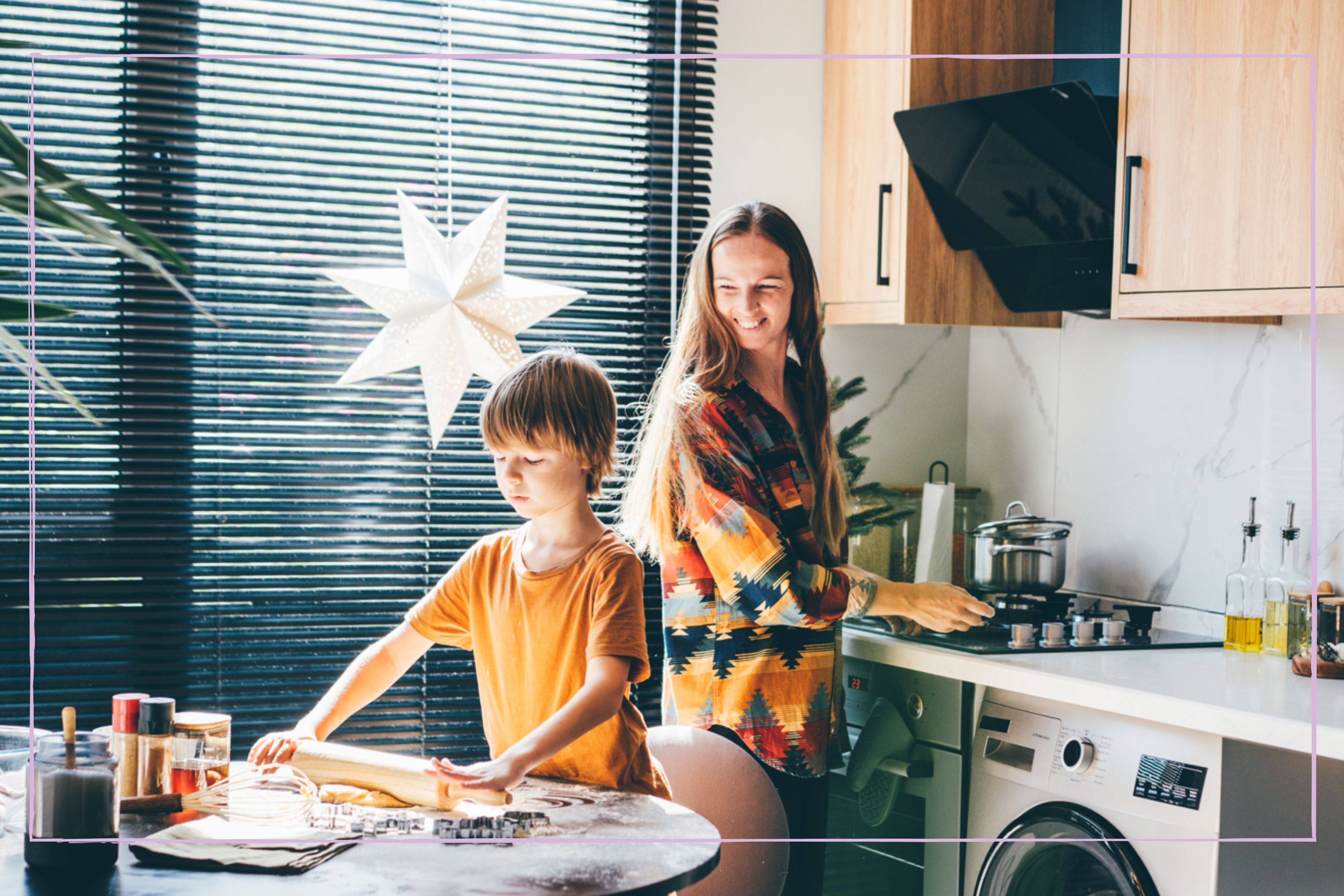
There are benefits to taking a step back and letting kids figure out things on their own - some psychologists have called it 'lazy' parenting.
When you're raising a child, you probably spend a lot of time thinking about which parenting style best fits your family dynamic. Many modern parents are opting for the empathetic gentle parenting style, while others prefer the more traditional and strict authoritative parenting style. But do we need more 'lazy' parents? Some psychologists say yes.
The Institute of Child Psychology - founded by registered psychologists Tania Johnson and Tammy Schamuhn - shared a post on Instagram in which they argued that 'lazy' parenting could be the way forward. Though the label could be a bit misleading - it's not about being neglectful, of course - this approach includes recognising when your child is old enough to do chores and allowing them to fail and learn from the consequences.
The experts share five ways that 'lazy' parenting can be beneficial for children's development:
- Mandate chores and cooking: 'Lazy parents' get their kids helping with chores as young as 18 months because that's when the helping instincts are ignited. Insisting that this help continues teaches that they need to take ownership of caring for the house they live in and the people in it.
- Allowing their children to struggle at times: Rushing to immediately help a child who is struggling with a task robs them of the opportunity to learn vital skills, including mastery, competence, problem-solving, critical thinking, and frustration tolerance.
- Not being there to entertain their child 24/7: Boredom is important - it increases frustration tolerance, cultivates creativity, and teaches problem-solving. Plus, entertaining children all the time is just plain exhausting!
- Backing off from homework battles: It's not the parents' homework, so they don't need to be in charge of it. Parents can act like 'homework consultants', but taking on the work themselves could send the message that the child can't be successful on their own.
- Experiencing natural consequences: Accept that there will be times when a child doesn't do what they need to, and it's ok for them to feel uncomfortable as a result. For example, if they don't wear a coat, they will experience feeling cold.
Other Instagram users agreed with the expert advice. One wrote under the post, "As a middle school teacher - I love all of this! Particularly the part about letting kids be “bored.” The iPad generation struggles so much with any moment of down time". Another said, "This is all so great! Such a great idea to be a 'lazy parent'".
But others objected to the use of the word 'lazy'. One commented, "I get that this post is facetiously using "lazy", but can that word be retired, already? I'm a Psychotherapist and it's the most loaded word for clients (often stemming from childhood). I truly don't believe there is such a thing as being lazy - humans are doing what they're capable of in most moments."
Another who took issue with the word said, "The word “lazy” should never be used. It takes an immense amount of skill and discipline to weave the thread of developing a child that has an awareness of self and confidence to persevere through challenges perceived as failure."
Similarly, some parents argued that there's nothing 'lazy' about this approach - and it in fact takes an immense amount of effort to hold back as a parent. One follower commented, "Honestly [though]…it’s easier to do everything for them, and keep them in safe bubbles. Takes a lot of discipline, patience and nerves to let your child struggle, be bored, and be uncomfortable".
Another said, "I do all these things but it’s not because I’m lazy. Actually it seems to take far more effort to leave my daughter to figure something out or wait for her to finish a ‘chore’".
In other family news, this is why your teenager thinks you don't understand them (and how to deal with it) and a child psychotherapist has revealed why toddlers hit their parents. Elsewhere, here's how you can help your child develop gratitude as they grow.







